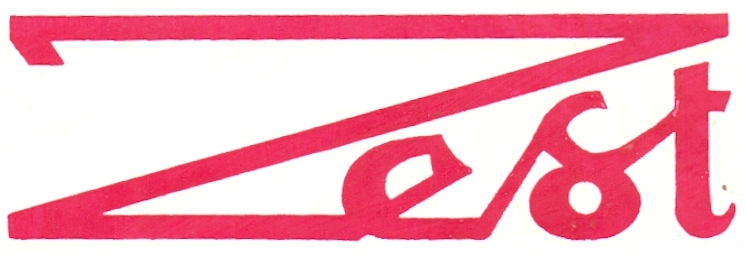PMP
35 hrs Theory Sessions
20 hrs of Practice Sessions
25 hrs of Hands-on Project
Introduction
PMP Training allows you to gain expertise for clearing the PMP Certification exam on the first attempt. The main objective of this training is to help the project management professionals in managing the project more efficiently throughout the Project Management Life Cycle. The PMP course enables the trainees to gain extensive knowledge on the basics of Project Management. Through practice sessions and implementing your skills in a real-time environment, you can acquire hands-on knowledge of Project Management.
Course Objective
PMP Course content includes topics like project time and cost management, Human Resource Considerations, Procurement and Risk Management, Communication, Project Stakeholder Management, etc…
PMP Course Objectives
Upon completion of this pmp training, you will be able to:
- Understand Modern Project Management tools including breakdown structure, Gantt charts, resource allocation, project scheduling models, cost management, project cost estimating and engineering economics.
- Develop flexible and broad technical toolkit and adapt your approach to the project context and constraints.
- Deliver projects on time, on scope, and budget.
- Cultivate the skills, leadership, and trust required to meet the project requirements
Pre-requisites
Following are the prerequisites for learning PMP Training :
- 3-5years of non-intersecting professional project management experience.
- Forty-five hours of proper project management education.
- 6,500 hours directing and leading projects.
Course Curriculum
Introduction To PMP Certification Prep Course
Introduction
Agenda
What is PMP and PMI
Pre-requisite for PMP Exam
About the PMP Exam
PMP Exam Syllabus.
Project Management Framework
Introduction
Agenda
Definition of a Project
What is Project Management
What is Portfolio Management
Project Management Office (PMO)
The Triple Constraints
Stakeholder Management
Organization Structure
Project Life Cycle vs. Product Life Cycle.
Project Management Process
Introduction
Agenda
Project Life Cycle vs Project Management Process
The Five Project Management Process Groups
Process Groups
Knowledge Areas and Project Management process Mapping
What happens in Each Process Groups.
Project Integration Management
Introduction
Agenda
What is Project Integration Management
The Key role of Project Manager
Project Team and Project Sponsor
Project Selection Methods
The Integration Management Knowledge Area
Develop Project Charter
Develop Project Management Plan
Direct and Manage Project Execution
Monitor & Control Project work
Perform Integrated Change Control
Close Project or Phase.
Project Scope Management
Introduction
Agenda
What is Project Scope Management
Product Scope vs. Project Scope
The Key terms in Project Scope Management
The Project Scope Management Processes
Collect Requirements
Define Scope
Create WBS
Verify Scope
Control Scope.
Project Time Management
Introduction
Agenda
What is Project Time Management
What is Project Schedule
The Key terms in Project Time Management
The Project Time Management Processes
Define Activities
Sequence Activities
Estimate Activity Resources
Estimate Activity Duration
Develop Schedule
Control Schedule
Schedule Network Analysis Techniques
Project Cost Management
Introduction
Agenda
What is Project Cost Management
Difference Between Cost Estimating and Cost Budgeting
Control Account
The Project Cost Management Processes
Estimate Costs
Determine Budget
Control Costs
Earned Value Management
Project Selection Methods.
Project Quality Management
Introduction
Agenda
What is Quality?
What is Quality Management?
Cost of Quality
The Project Quality Management Processes
Plan Quality
Perform Quality Assurance
Perform Quality Control
Seven Basic tools of Quality
Introduction to Six Sigma.
Project Human Resource Management
Introduction
Agenda
What is Human Resource Management
Roles and Responsibilities of the Project Sponsor
Functional Manager vs. Project Manager
The Project Human Resource Management Processes
Develop Human Resource Plan
Acquire Project Team
Develop Project Team
Manage Project Team
Conflict Management
Powers of Project Manager
Motivation Theory.
Project Risk Management
Introduction
Agenda
What is Risk
How is risk calculated
Risk Categorization
Decision Tree
Risk Reserve
The Risk Management Knowledge Area
Plan Risk Management
Identify Risk
Perform Qualitative Risk Analysis
Perform Quantitative Risk Analysis
Plan Risk Responses.
Project Communication Management
Introduction
Agenda
What is Communication
Communication Methods
Technology and Channels
Basic Communication Model
The Communication Management Knowledge Area
Identify Stakeholders
Plan Communications
Distribute Information
Manage Stakeholder Expectation
Report Performance.
Project Procurement Management
Introduction
Agenda
What is a Contract
Centralized vs. Decentralized contracting
Different Types of Contract
Key terms in Procurement Management
The Procurement Management Knowledge Area
Plan Procurements
Conduct Procurements
Administer Procurements
Close Procurements
Project Stakeholder Management
Introduction
Agenda
Ensure Individual Integrity
Contribute to Project Management Knowledge Base
Enhance self-Professional competence
Promote Stakeholder collaboration.
Hands-on
Our PMP Training course aims to deliver quality training that covers solid fundamental knowledge on core concepts with a practical approach. Such exposure to the current industry use-cases and scenarios will help learners scale up their skills and perform real-time projects with the best practices.
